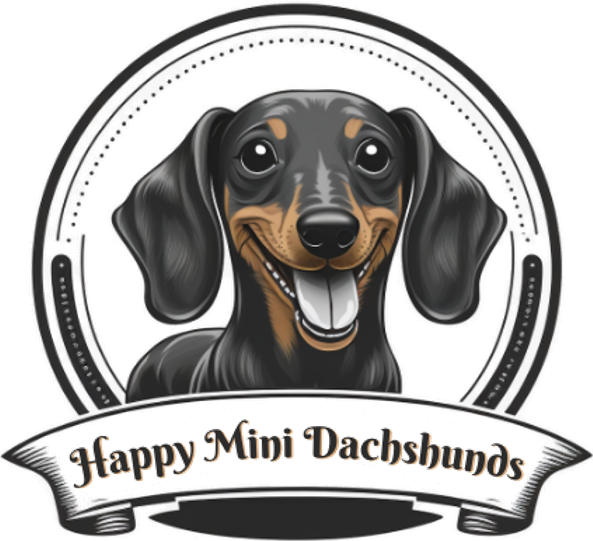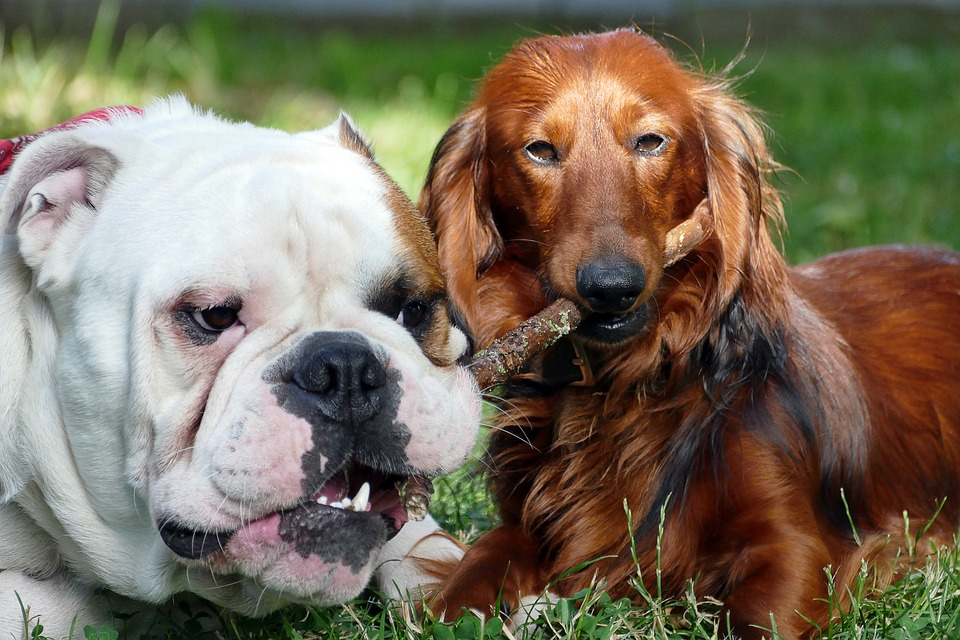Miniature Dachshunds are a popular breed among dog lovers for their unique physique and playful personalities. They are small, but they have big personalities, which make them a great addition to any family. However, if you’re considering bringing a mini Dachshund into your home, you might be wondering if they are good with other dogs.
Miniature Dachshunds are known to have a friendly and affectionate nature, but as with any breed, their behavior around other dogs can depend on several factors. It’s important to understand how mini Dachshunds interact with other dogs and what factors to consider when introducing them to other canines.
In this blog post, we’ll explore whether mini Dachshunds are good with other dogs, including their personality traits, how they interact with other dogs, and factors to consider when introducing them to other dogs. We’ll also provide tips for a successful introduction and discuss the importance of socialization and training.
So, if you’re curious about mini Dachshunds and their interactions with other dogs, read on to find out more.
Key Takeaways:
- Mini Dachshunds have a unique personality and can be stubborn and territorial, but they can also be friendly and social with other dogs.
- Introducing Mini Dachshunds to other dogs requires careful planning, supervision, and patience to ensure a positive experience for everyone.
- Following the tips and strategies outlined in this article can help ensure a successful introduction and positive ongoing interactions between your Mini Dachshund and other dogs.
Mini dachshunds’ personality traits
Miniature Dachshunds, also known as “wiener dogs,” are known for their lively personalities and adorable long bodies. They are an affectionate and playful breed that loves to be around their owners and other pets. Understanding their personality traits can help you determine whether they will be a good fit for your family and your other pets.
Friendly and affectionate
Mini Dachshunds are known to be friendly and affectionate dogs. They love spending time with their owners and are always up for a cuddle session on the couch. They are also great with children and can make wonderful family pets.
High energy and playful
Mini Dachshunds are a high-energy breed that loves to play. They enjoy chasing after toys, going for walks, and playing with other dogs. They are an active breed that needs regular exercise to stay healthy and happy.
Strong hunting instincts
As a hunting breed, mini Dachshunds have a strong prey drive. They were originally bred to hunt small animals like badgers and rabbits, which means they may try to chase and catch smaller animals they encounter. This instinct can also affect their behavior around other dogs, especially smaller breeds.
Protective nature
Despite their small size, mini Dachshunds are known to be protective of their owners and their territory. They will bark at strangers and may even become aggressive if they feel their owners or home are being threatened. This protective nature can make them excellent watchdogs.
Intelligence and trainability
Mini Dachshunds are intelligent dogs that can be trained with patience and consistency. They are known to be stubborn at times, but with positive reinforcement training methods, they can learn a variety of commands and tricks. Training is essential for their mental stimulation and can help keep them out of trouble.
Related: Are Mini Dachshunds Good with Babies?
Factors to consider when introducing mini dachshunds to other dogs
When introducing a mini Dachshund to other dogs, there are several factors to consider to ensure a smooth and safe introduction. Here are some things to keep in mind:
Age and size of the other dog
Mini Dachshunds are a small breed, and it’s important to consider the age and size of the other dog when introducing them. It’s generally best to introduce them to dogs that are of a similar size and age, as larger or more energetic dogs may accidentally harm or intimidate them.
Socialization and training
Socialization and training are crucial factors when introducing a mini Dachshund to other dogs. It’s important to socialize them with other dogs and people from a young age to prevent fear or aggression towards other animals. Proper training, including obedience and recall training, can also help prevent any potential problems during introductions.
Temperament of the other dog
The temperament of the other dog is also an important factor to consider when introducing a mini Dachshund. If the other dog is aggressive or dominant, it may not be a good match for a mini Dachshund. On the other hand, if the other dog is friendly and easy-going, they may get along well with a mini Dachshund.
Environment
The environment in which the introduction takes place can also affect how the dogs interact with each other. It’s best to introduce the dogs in a neutral location, such as a park or a friend’s backyard, where neither dog feels territorial. Introducing them in a home environment may cause the resident dog to become territorial and defensive.
Supervision
It’s important to closely supervise the dogs during the introduction process. Even if both dogs seem friendly, it’s important to watch for any signs of aggression or discomfort. If either dog shows signs of discomfort or aggression, it’s best to separate them and try again at a later time.
Related: How to Help Your Mini Dachshund and Cat Live in Harmony
How mini dachshunds interact with other dogs
Mini Dachshunds can have varying degrees of success in interacting with other dogs, depending on a variety of factors such as their personality, socialization, and the other dog’s behavior. Some Mini Dachshunds are very friendly and social with other dogs, while others may be more reserved or even aggressive.
- Friendly interactions: When a Mini Dachshund is friendly towards other dogs, they will usually approach them with a wagging tail and an open, relaxed posture. They may sniff each other’s rear ends as a way of greeting and getting to know each other. Some Mini Dachshunds may even engage in play with other dogs, such as chasing or wrestling.
- Reserved interactions: On the other hand, some Mini Dachshunds may be more reserved around other dogs. They may stand back and observe from a distance, or approach cautiously. This can be due to a lack of socialization or previous negative experiences with other dogs. However, with proper training and socialization, even a reserved Mini Dachshund can learn to interact more confidently with other dogs.
- Aggressive interactions: In some cases, Mini Dachshunds may exhibit aggressive behavior towards other dogs. This can be due to a variety of reasons, such as fear, territoriality, or past negative experiences. Aggressive behavior can manifest in various ways, such as growling, barking, snapping, or even attacking the other dog. It is important to address any aggressive behavior with proper training and seek the guidance of a professional dog trainer or behaviorist.
It is also worth noting that Mini Dachshunds may have a tendency towards resource guarding, which is the aggressive protection of their toys, food, or other possessions. This can lead to conflict with other dogs who may approach their belongings. It is important to supervise interactions between dogs and manage any potential triggers for resource guarding.
Overall, while Mini Dachshunds can have varying levels of success in interacting with other dogs, proper socialization and training can help ensure that they have positive and safe experiences with their furry friends.
Tips for introducing mini dachshunds to other dogs
While mini dachshunds can get along well with other dogs, it is important to introduce them properly to prevent any potential conflicts. Here are some tips for introducing your mini dachshund to other dogs:
- Choose a neutral location: Introducing your mini dachshund to another dog in a neutral location, such as a park, can help prevent territorial behavior.
- Use positive reinforcement: Use positive reinforcement, such as treats and praise, to encourage your mini dachshund to approach the other dog in a friendly manner.
- Supervise the interaction: Always supervise the interaction between your mini dachshund and the other dog. If the interaction becomes too aggressive or tense, separate the dogs.
- Gradual introductions: Gradually introduce your mini dachshund to the other dog in short sessions. Increase the length of the sessions as the dogs become more comfortable with each other.
- Respect your mini dachshund’s boundaries: If your mini dachshund seems uncomfortable or anxious around the other dog, do not force the interaction.
- Avoid introducing too many dogs at once: Introducing your mini dachshund to too many dogs at once can be overwhelming and stressful. Introduce your mini dachshund to one dog at a time.
- Use a leash: Keep both dogs on a leash during the introduction. This allows you to control the interaction and separate the dogs if necessary.
By following these tips, you can help ensure a successful introduction between your mini dachshund and other dogs. Remember that each dog is unique and may require different methods of introduction. It is important to pay attention to your dog’s behavior and adjust your approach accordingly.
Conclusion
In conclusion, introducing your mini dachshund to other dogs can be a positive and enjoyable experience for both your pet and other dogs. However, it is essential to consider your mini dachshund’s personality traits, the other dog’s personality, and the environment before introducing them.
Mini dachshunds are generally friendly and social dogs, but they may exhibit some aggressive behavior towards other dogs due to their territorial nature. Therefore, proper training and socialization are necessary to prevent any unwanted behavior.
When introducing your mini dachshund to other dogs, it is crucial to supervise their interactions and gradually increase the duration and frequency of their playtime. Additionally, using positive reinforcement and rewarding good behavior can help reinforce the positive behavior of both dogs.
By following these tips and taking the necessary precautions, you can ensure that your mini dachshund has a positive and enjoyable experience when interacting with other dogs. Remember that every dog is unique, and it may take time for your mini dachshund to adjust to new dogs, so be patient and enjoy the process.

